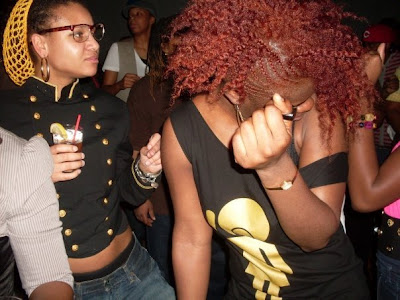
Today is World AIDS Day. HIV/AIDS affects millions around the globe, so we are dedicating this post to all of those out there dealing with the disease. Cut It Out! strives to empower females to take control of their health, inside and out. We encourage everyone to be proactive in living healthier lives and part of that involves taking better steps to prevent contracting the HIV/AIDS virus. We support those that are living with the virus and encourage them to seek the most suitable treatments available to prevent the onset of AIDS.
"Your risk of getting HIV or passing it to someone else depends on several things. Do you know what they are? You might want to talk to someone who knows about HIV. You can also do the following:
- Abstain from sex (do not have oral, anal, or vaginal sex) until you are in a relationship with only one person, are having sex with only each other, and each of you knows the other’s HIV status.
If both you and your partner have HIV, use condoms to prevent other STDs and possible infection with a different strain of HIV.
- If only one of you has HIV, use a latex condom and lubricant every time you have sex.
- If you have, or plan to have, more than one sex partner, consider the following:
- Get tested for HIV
- If you are a woman who is planning to get pregnant or who is pregnant, get tested as soon as possible, before you have your baby.
- Talk about HIV and other STDs with each partner before you have sex.
- Learn as much as you can about each partner’s past behavior (sex and drug use) and consider the risks to your health before you have sex.
- Ask your partners if they have recently been tested for HIV; encourage those who have not been tested to do so.
- Use a latex condom and lubricant every time you have sex.
- If you think you may have been exposed to another STD such as gonorrhea, syphilis, or Chlamydia trachomatis infection, get treatment. These diseases can increase your risk of getting HIV.
- Get tested for HIV
- Even if you think you have low risk for HIV infection, get tested whenever you have a regular medical check-up.
- Do not inject illicit drugs (drugs not prescribed by your doctor). You can get HIV through needles, syringes, and other works if they are contaminated with the blood of someone who has HIV. Drugs also cloud your mind, which may result in riskier sex.
- If you do inject drugs, do the following:
- Use only clean needles, syringes, and other works.
- Never share needles, syringes, or other works.
- Be careful not to expose yourself to another person's blood.
- Get tested for HIV test at least once a year.
- Consider getting counseling and treatment for your drug use.
- Do not have sex when you are taking drugs or drinking alcohol because being high can make you more likely to take risks.
To protect yourself, remember these ABCs:
A=Abstinence
B=Be Faithful
C=Condoms
If you are a woman, there are even more things you can do.
DO
Use a female condom.
Get tested, especially if you’re pregnant.
If you are pregnant and have HIV, talk to your doctor about taking medicine so your baby does not get your HIV.
DO NOT
- Do not use spermicides that contain nonoxynol-9 (N-9). This product may help keep you from getting pregnant, but it will not protect you from HIV. In fact, using N-9 often may actually make it easier for you to get HIV.
- Do not count on most birth control methods to protect you from HIV. The following birth control methods will NOT protect you from HIV:
- The pill
- Diaphrams
- Shots
- Implants
- N-9
Do not douche. Douching removes some of your body’s natural protection."
Source: CDCRemember, if you are sexually active, it is extremely important that you get tested and take the proper preventative measures to protect yourself.
Are you a Cut It Out! Girl?!
xo
































